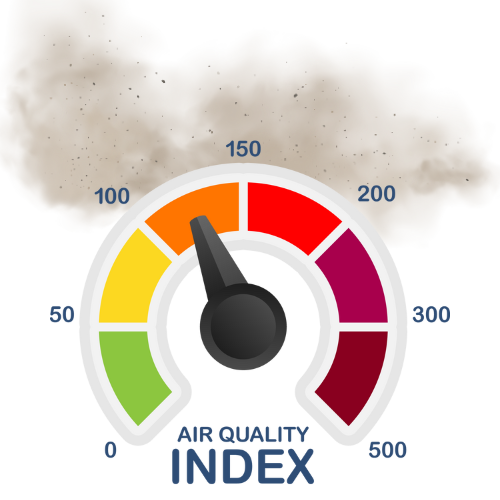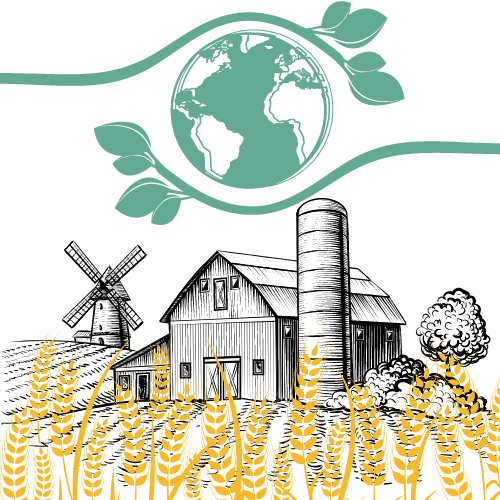Climate Change and One Health
The impacts of climate change have far-reaching impacts on public health, animal well-being, and the environment. These challenges are intensifying and causing unprecedented disruptions.
To tackle the scale of climate shift, Colorado State University’s One Health Institute initiated five pilot projects themed “Climate Change and One Health” in the Fall 2021. Supported by CSU OHI, the School of Global Environmental Sustainability, and the Office of the Vice President for Research, these projects embraced a One Health approach to address global challenges posed by a warming climate. This approach recognizes the interdependence of human, animal, and environmental health. Collaborative interdisciplinary teams were formed to strategize and prepare for the expected repercussions of climate change.
Importance of Pilot Projects
The One Health Institute works to provide infrastructure that connects researchers accross disciplines to study and address complex challenges that are impacting human, animal and environmental health. For the purpose of these pilot projects, diverse teams contributed solution-oriented research and frameworks that will help mitigate and plan for climate change’s impacts on the Earth in the coming decades.

Lead PI: Ashley Anderson
The Smoke-Ready Communities Pilot Project in Fort Collins aimed to enhance the dissemination of air quality information to the public. This initiative focused on improving communication practices to better inform at-risk communities during heightened wildfire smoke events. Through targeted messages and reliable sources, the project educated residents on safeguarding their well-being and that of their animals.

Lead PI: Brooke Anderson, Co-PI: James Hurrell
Extreme temperatures pose health risks to humans, animals, and the environment. Prior research has shown that areas experiencing extreme temperatures due to climate change show higher human mortality rates. CSU researchers explored a solar climate intervention scenario to create frameworks that have the potential to mitigate rising temperatures. The project analyzed temperature-related human mortality in adults aged 65+ across eight major U.S. cities using historical data to project the impact of strasospheric aerosol injection as a scenario with potential for decreasing rising temperatures.

Research opportunities for emerging technologies in virtual livestock fencing and potential for mitigating the effects of climate change on western ranches
Lead PI: Paul Evangelista, Co-PI: Dana Hoag
Western ranches face resource limitations for response and recovery, leaving them vulnerable to droughts, wildfires, floods, and extreme weather. CSU researchers working on this project are exploring the potential of virtual fencing to reshape climate change’s impact on range management. This emerging technology enables ranchers to guide livestock movement strategically, steering clear of sensitive habitats and hazards. It holds promise for climate adaptation in ranch management by offering control and adaptability to mitigate climate change effects.

Lead PI: David Rojas Rueda
Urban planners employ green spaces as a strategic solution to address land cover challenges and counter environmental issues. Previous research has highlighted that increased greenery in neighborhoods correlates with reduced heat waves, enhanced air quality, and greater outdoor community engagement.
This pilot project focused on assessing the impact of integrating native plants within urban green spaces across Denver. Objectives were studying the presence of pollinators, enhancing human health, and potentially lowering human mortality rates in urban environments.

Lead PI: Kim Stackhouse-Lawson
The Western Great Plains, North America’s largest remaining grassland, sustains crucial livestock-based food production. However, climate change poses a significant threat to this ecosystem and industry, potentially causing substantial shifts in livestock farming, ecology, and economics. With pilot funding, this CSU team collaborated with ranchers, conservation groups, industries, and communities to address these challenges. Their primary goal was to develop a community-centered framework for implementing sustainable livestock practices, fostering rural resilience, and cultivating robust communities and economies.
The Reimagine Project emphasized the importance of broadening research team membership by integrating social scientists, data scientists, and engineers into agricultural-focused problem-solving efforts in response to escalating climate change impacts.


